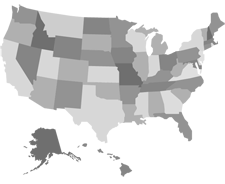How to Build Credit When You Have None
There seems to be an overabundance of financial articles related to getting out of debt and re-establishing a solid credit history. With so many millions of Americans still recovering from the last few years of economic turmoil and uncertainty, someone just starting out may find it difficult to understand how to successfully (and smartly) build new credit.First, let's discuss a credit report. There are three main credit reporting bureaus in the U.S. These are TransUnion, Experian, and Equifax. Any time you apply for credit, whether it's for a credit card, auto loan, or mortgage, it is reported to one or all of these credit reporting agencies. Your credit history is simply a record of how responsible you have been in repaying your loans. Your credit report indicates how much outstanding debt you owe and to whom, how much your monthly payments are, and whether you pay on time.
Creditors and lenders use an individual's credit report when deciding whether to approve or decline any type of loan application. If you have no credit history to review, many creditors may be reluctant to lend you money.
It may take a little time, but it is possible to build credit even when you have a "blank slate". Keep in mind that it's important to do this in a reasonable way so that you don't overextend yourself financially right from the beginning.
Here are some good suggestions to help you get started!
Simple Steps to Establish Credit
- Obtain a secured credit card. A secured credit card can be used in exactly the same way as a regular credit card. The difference is that the issuing bank requires you to put down a security deposit. This is usually in an amount ranging from $300 to $500. This gives the creditor a bit more confidence that you will make timely payments and live up to the terms of your credit card agreement. If you do not, the bank has the authority to take your deposit and cancel your account.
The credit limit on your new card is generally equal to the amount you give as a security deposit. Having a secured credit card helps establish a credit history because the issuing bank reports your payment history to the credit reporting bureaus every month. It is very important to make your payments on time each and every month. You should also avoid making a late payment. Not only does this usually result in additional late fees and penalties, it can also have a severe negative impact on your credit score. - Never charge more than you can afford to pay off in full each month. When creditors and lenders review your credit history, they are looking for a pattern of timely payments. They want to see that you can responsibly manage your debt and have the ability to pay back any money which you owe. This is an excellent reason to start off slowly when using new credit.
When you only charge what you are easily able to pay off in full each month it demonstrates that you are using your credit wisely and have the financial means to repay your debt. Remember, the total amount of charges you incur each month is not deducted from your security deposit. You are responsible for paying either the minimum amount due or up to the full amount. It's your decision.
It's not enough to just have the credit card. To establish a consistent pattern of use and payments, you need to actually make small charges each month and pay them off in full. Any time you maintain an outstanding balance of 50% or more of your credit limit it can significantly damage your credit score. - Always make timely payments. This cannot be stressed enough! The most important thing you can do to build and maintain a solid credit score is to pay all of your bills on time each and every month. Even one late payment can seriously affect your credit score. If you are concerned about forgetting when a payment is due, set up bill pay through your bank or pay your bills online. Write a list of due dates for your bills so that you know when payments are due. Do whatever works for you so that you never run the risk of making a late payment or forgetting one altogether.
- Don't apply for numerous forms of credit. It can be tempting to think "if one credit card is good, a few more will be even better". Not true! Every time you submit an application for new credit, your credit score will go down a bit. In the beginning, concentrate on maintaining an excellent payment record with your initial credit card.
- After about a year of timely payments, apply for an unsecured credit card. If you have been diligent about making timely payments and keep a low outstanding balance (or better yet, paying off your entire bill each month), twelve months should be a reasonable amount of time for your credit card company to consider you a responsible borrower. Contact your issuing bank and request an unsecured card.
If you are approved, your new card may come with a higher credit limit. It's important to use this card in the same manner that you used your secured card. Only charge what you can fully repay each month and always pay on time.
The key to building a solid credit history is patience. But the rewards are worth it. These include more favorable loan terms and lower interest rates in the future. If you're talking about a home mortgage or car loan, a great credit score can add up to huge savings over the life of the loan.
State Guides
- Alabama
- Alaska
- Arizona
- Arkansas
- California
- Colorado
- Connecticut
- Delaware
- District of Columbia
- Florida
- Georgia
- Hawaii
- Idaho
- Illinois
- Indiana
- Iowa
- Kansas
- Kentucky
- Louisiana
- Maine
- Maryland
- Massachusetts
- Michigan
- Minnesota
- Mississippi
- Missouri
- Montana
- Nebraska
- Nevada
- New Hampshire
- New Jersey
- New Mexico
- New York
- North Carolina
- North Dakota
- Ohio
- Oklahoma
- Oregon
- Pennsylvania
- Rhode Island
- South Carolina
- South Dakota
- Tennessee
- Texas
- Utah
- Vermont
- Virginia
- Washington
- West Virginia
- Wisconsin
- Wyoming



